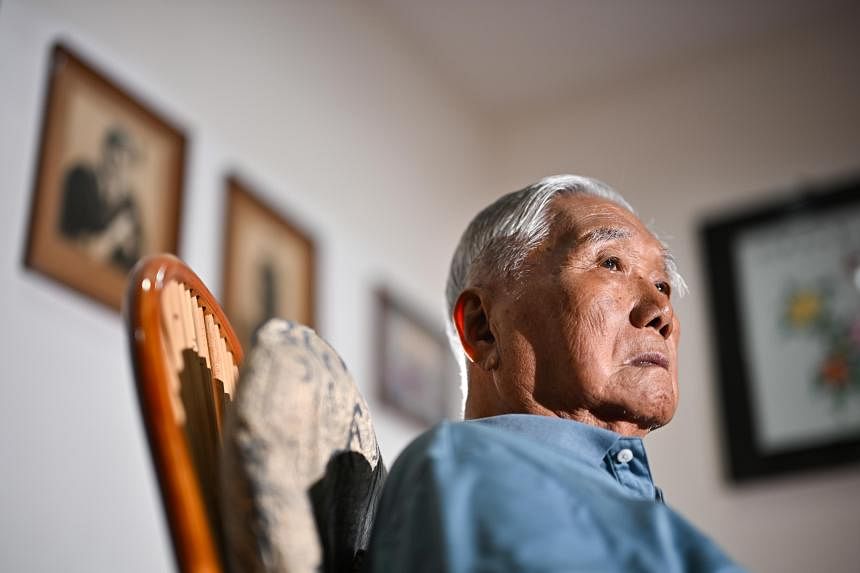- Joined
- Jul 16, 2008
- Messages
- 25,720
- Points
- 113

SINGAPORE – Over eight decades have passed, but Mr Ye Kun Chan, 88, still remembers that fateful evening like it was yesterday.
It was a Saturday, the eve of Chinese New Year, 1942. His family, unknowingly savouring the last dregs of their freedom, sat down for dinner. The then six-year-old was the first to finish and ran off to entertain himself.
Walking out of the dining room, a flash of movement caught his eye. He peered closer: The bushes were shaking violently. Then, he saw a hat – and not a normal one.
“I realised I was looking at not one, but three Japanese soldiers. I was terrified and immediately ran inside to tell my parents,” he says.
“That’s when I realised the Japanese had entered Singapore and our suffering had begun.”
He spent most of the next three years – until the end of the Japanese Occupation in September 1945 – hiding in his home in Beach Road with his older sister, shrouded in fear and misery. They subsisted on a diet of tapioca and unhusked rice, which Mr Ye says tasted of ash, “no matter how many times you washed it”.
And then there was the unimaginable cruelty. He recalls how the Japanese soldiers went on a rampage through his kampung shortly after their arrival – and what happened to his neighbours, who lived less than 100m away from his home.
“The soldiers set fire to their house. I can still remember their screaming.”
In the years that have followed, the former principal of Catholic High School has learnt to live with these memories.
He published personal essays in Chinese about his life, under the pen name Luo Ming, and even made Japanese friends. He also developed a grudging respect for Japan’s technological advancements.
Still, the writer tries his best to shun any reminders of Japan in his day-to-day life.
“I’ll eat sushi if my children buy it for me. But I won’t choose it for myself because I still feel a pain in my heart when reminded of that time,” he says in an interview at his home in Serangoon Gardens.
“Those who did not experience the Occupation would not really understand. It’s not that I simply hate everything Japanese. You have to understand the sort of suffering we went through, the circumstances of the time.”
Another survivor, Mr Tan Kim Wah, 96, refuses to touch Japanese cuisine altogether on the principle that it is the food of his oppressors.
He was 14 when the Occupation began and witnessed Japanese soldiers rounding up civilians for slaughter during Sook Ching, a mass killing that took place from Feb 18 to March 4 in 1942.
“They used a metal wire to pierce through the arms of their prisoners, stringing them together on the same wire – this made it impossible for them to escape. After that, they were loaded onto lorries to be taken to the massacre sites,” the retiree says.
Similar memories of bloody executions had haunted housewife Chew Yoke Cheng until her death at the age of 85 in 2017.
Her son, Dr Gary Lit, a 65-year-old retired academic, says: “My children like to go out to eat Japanese food, and every time they asked my mother, she would baulk at the prospect.
“Japanese restaurants sometimes displayed the national flag and other memorabilia, and it would make her shiver. She told me, ‘Every time I see a Japanese flag, my heart is gripped with fear and it starts pounding.’”
https://www.straitstimes.com/life/f...wwii-shaped-the-eating-habits-of-a-generation





